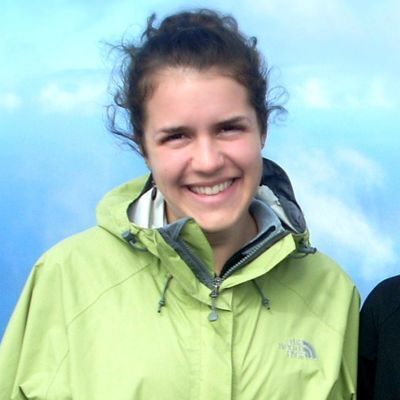Katie Wollstein, Eastern Oregon Agricultural Research Center Rangeland Fire Scientist

Meet Dr. Katie Wollstein, Rangeland Fire Specialist with the Eastern Oregon Agricultural Research Center. "I didn't intend to end up in fire [but] my expertise is rangeland governance and wildfire occupies the really interesting intersection of ecological, social, political, and economic factors all converging around this issue." Katie has a Bachelors in Wildlife Ecology at Washington State University and a Masters from Oregon State University where she researched Rangeland Conservation and Governance. Her doctoral research at the University of Idaho focused on grazing policy and administration, exploring the social and policy conditions for flexibility within federal agencies administrative structures to do things like using cattle grazing to reduce fire fuels on federal lands.
What initially brought Katie to Harney County was the study of Rangeland Fire Protection Associations (RFPAs) in 2015. " . . . we have [ranchers] who are uniquely invested in reducing fire or living more positively with it as fire directly affects their livelihoods . . . and so we saw them organizing to be able to respond to fire, to get to new equipment, to get training, to do that better than they have previously without the organization of RFPAs." Out of this research Katie was one within a team of researchers who produced a report that looked at how RFPAs got their start, how they operate and the successes and challenges they've had.
The work Katie does today within the Oregon State University Fire Program is an intersection between research, education and helping to "facilitate collective action" around wildfire resilience. Within the structure of this program Katie looks for opportunities to bring people with different tools, capacities, and types of knowledge together. A favorite example she points to of local partners doing this kind of work was the development of the Lone Pine Fire Prevention Plans which were concluded in 2021. "It's a 60,000 acre area, where a number of landowners who are also in the Lone Pine RFPA, applied for Natural Resource Conservation Service funding to reduce wildfire risk across multiple ownerships. They had an eye toward reducing hazards, putting in fuel breaks and collectively making this area more resilient to fire and as an RFPA being more able to effectively respond when there is fire." Building wildfire resilient landscapes is challenging but Katie enjoys the challenge. "I really enjoy working with the agencies and the landowners, they have really cool ideas so I enjoy helping figure out how to put their good ideas into practice. People are really savvy and there's usually agreement on the main issue. No one wants to see these big fires, and so we have that going for us."
Katie is also an active participant with the Harney County Wildfire Collaborative. "It's a great venue for me to understand perspectives on the issues and different barriers from the different partners. I've gotten the foundational ideas for my extension programming out of the collaborative, like the need to use all the rangeland management tools we have to manage fire."
Katie has lots of balls in the air and one is working with multiple people and organizations to develop a Community Wildfire Protection Plan (CWPP). A CWPP identifies issues related to wildfire response, hazards, community preparedness, and proposes mitigation options. Harney County has convened a diverse group of governmental and nongovernmental entities to discuss risk and mitigation options, resource needs, and lay out a vision for the county being better prepared for wildfire events. Importantly, the development of a CWPP is a process that in itself can strengthen relationships within the community and facilitate learning.
Like so many in Harney County Katie's days are busy. But she has time to herself she likes to run with her dog Stella, cook interesting things and is a bit of a rock hound who enjoys exploring Harney County.
